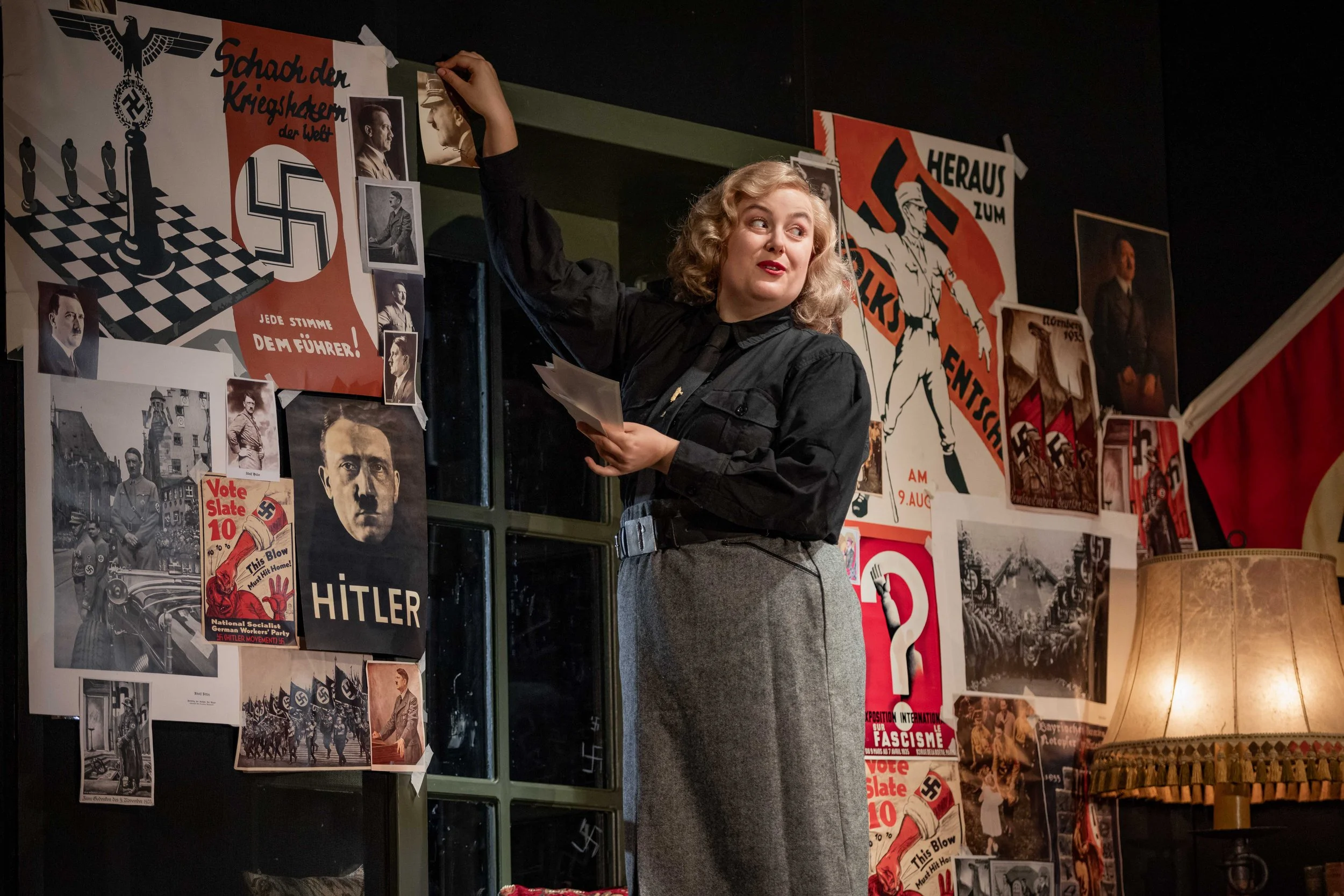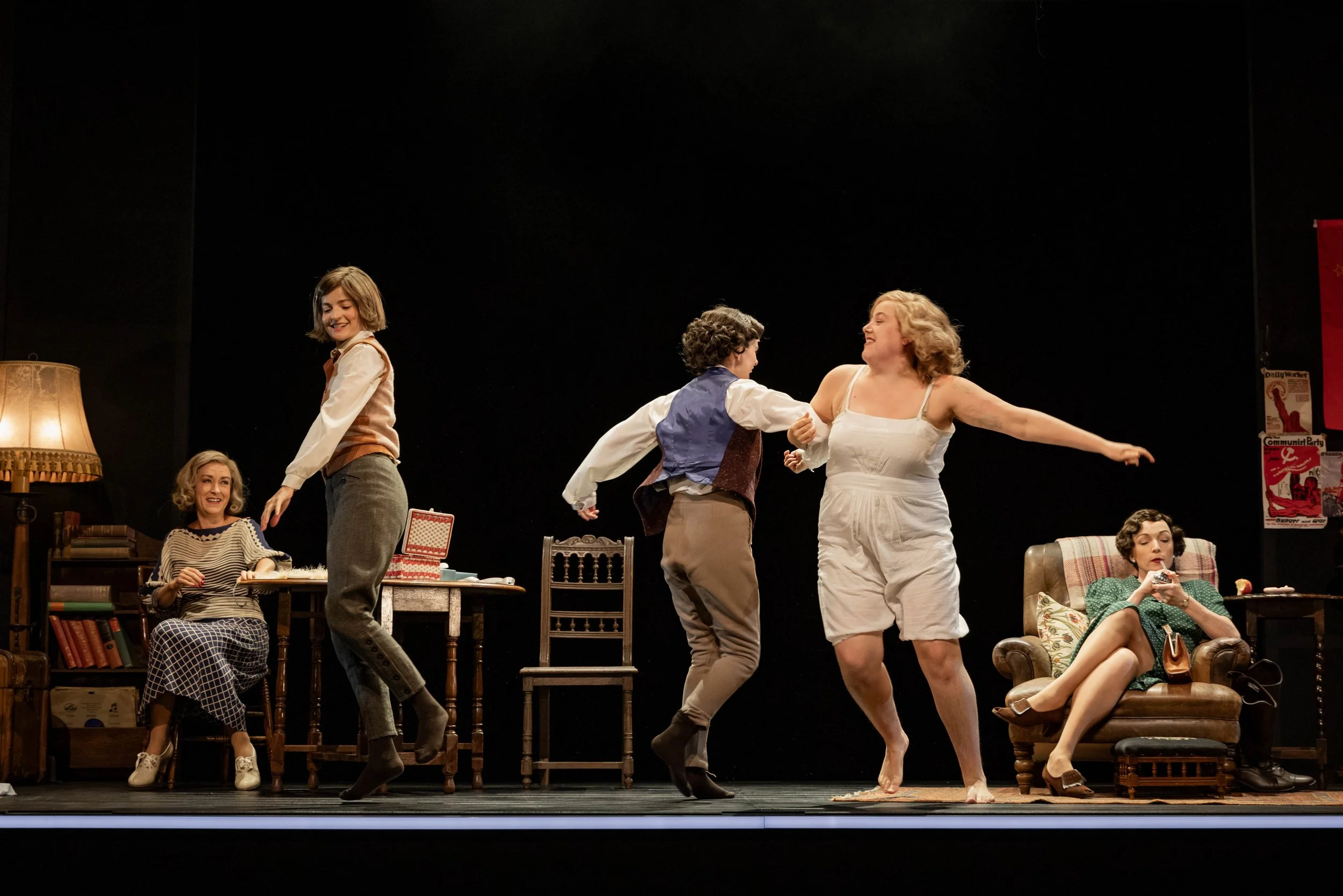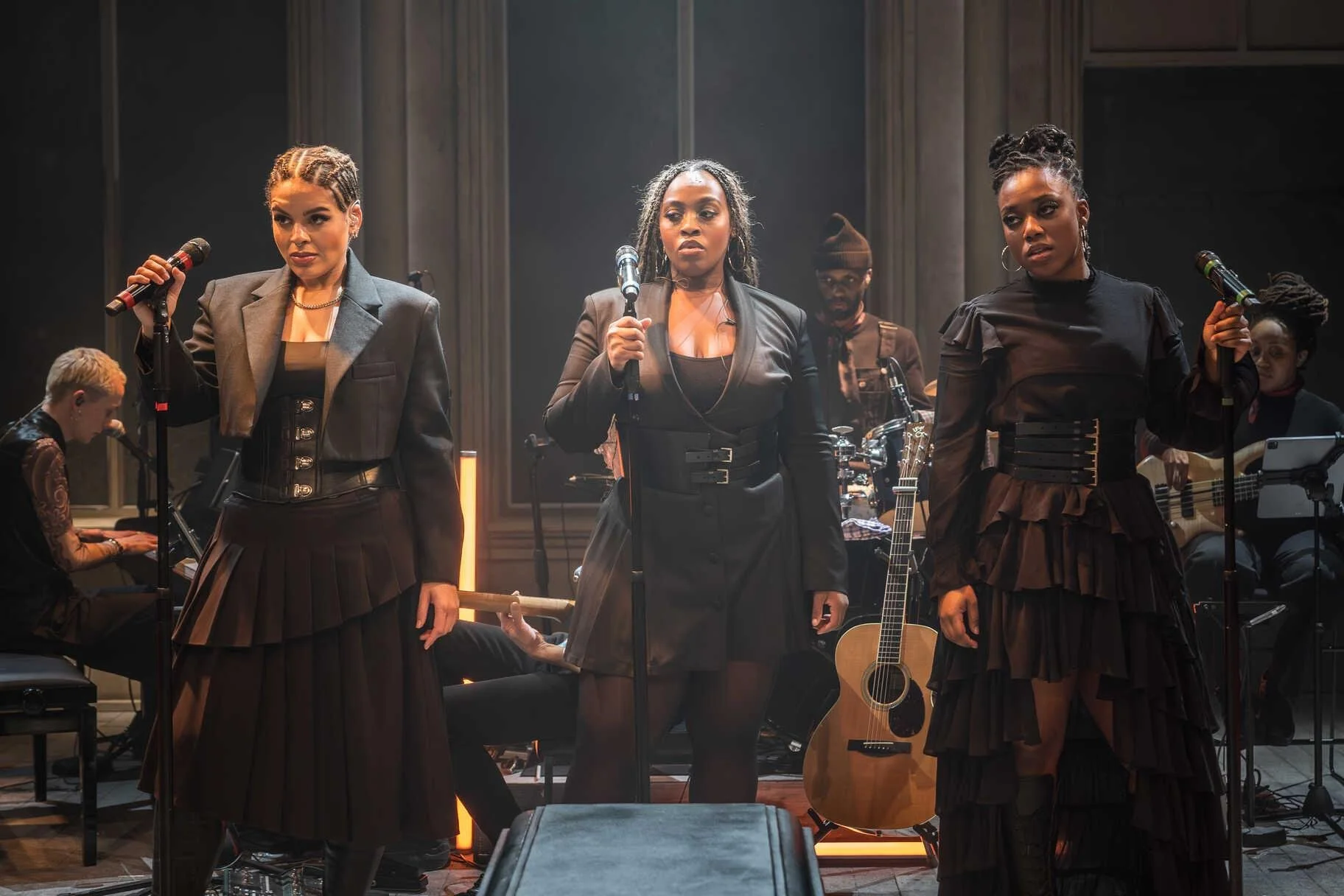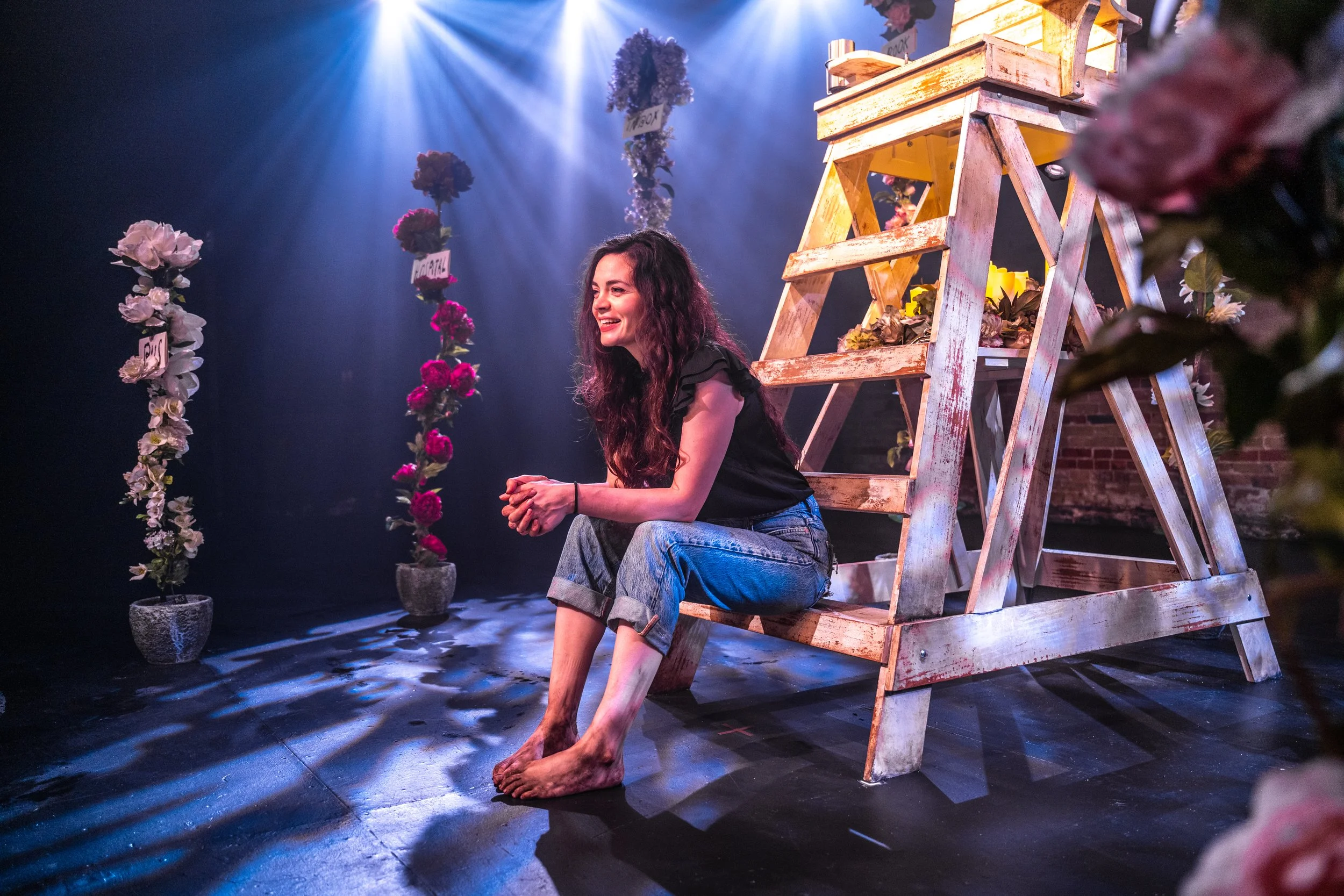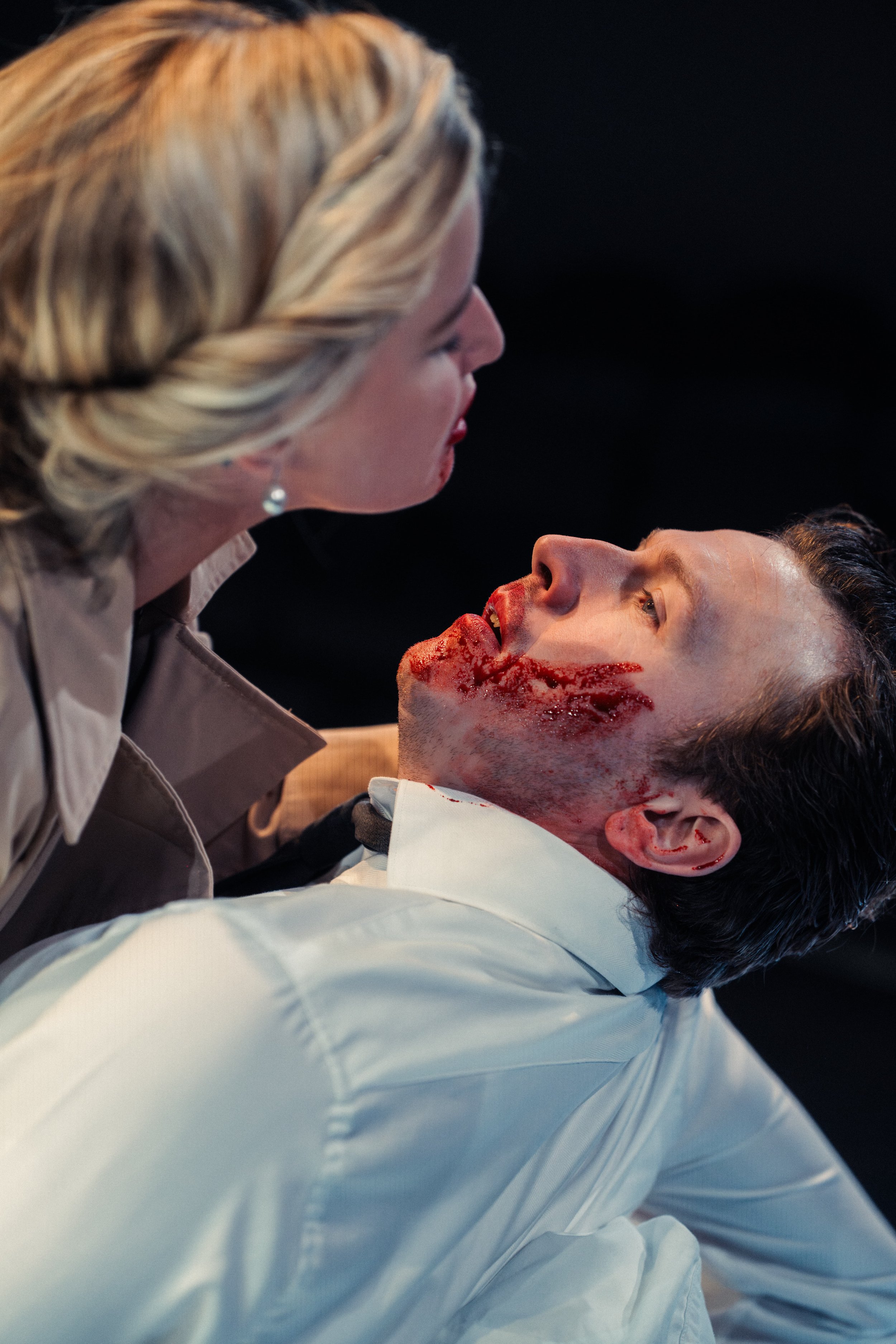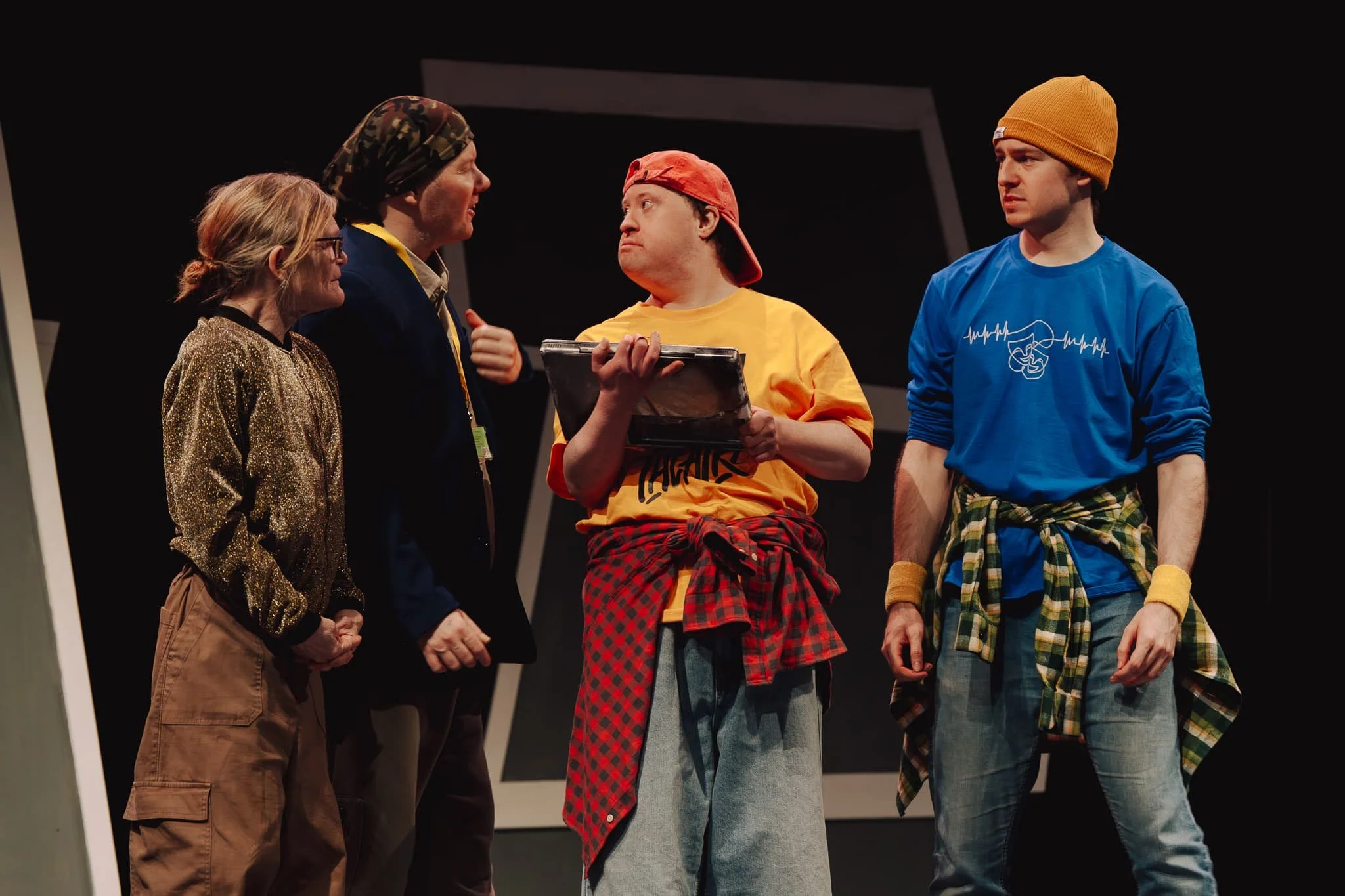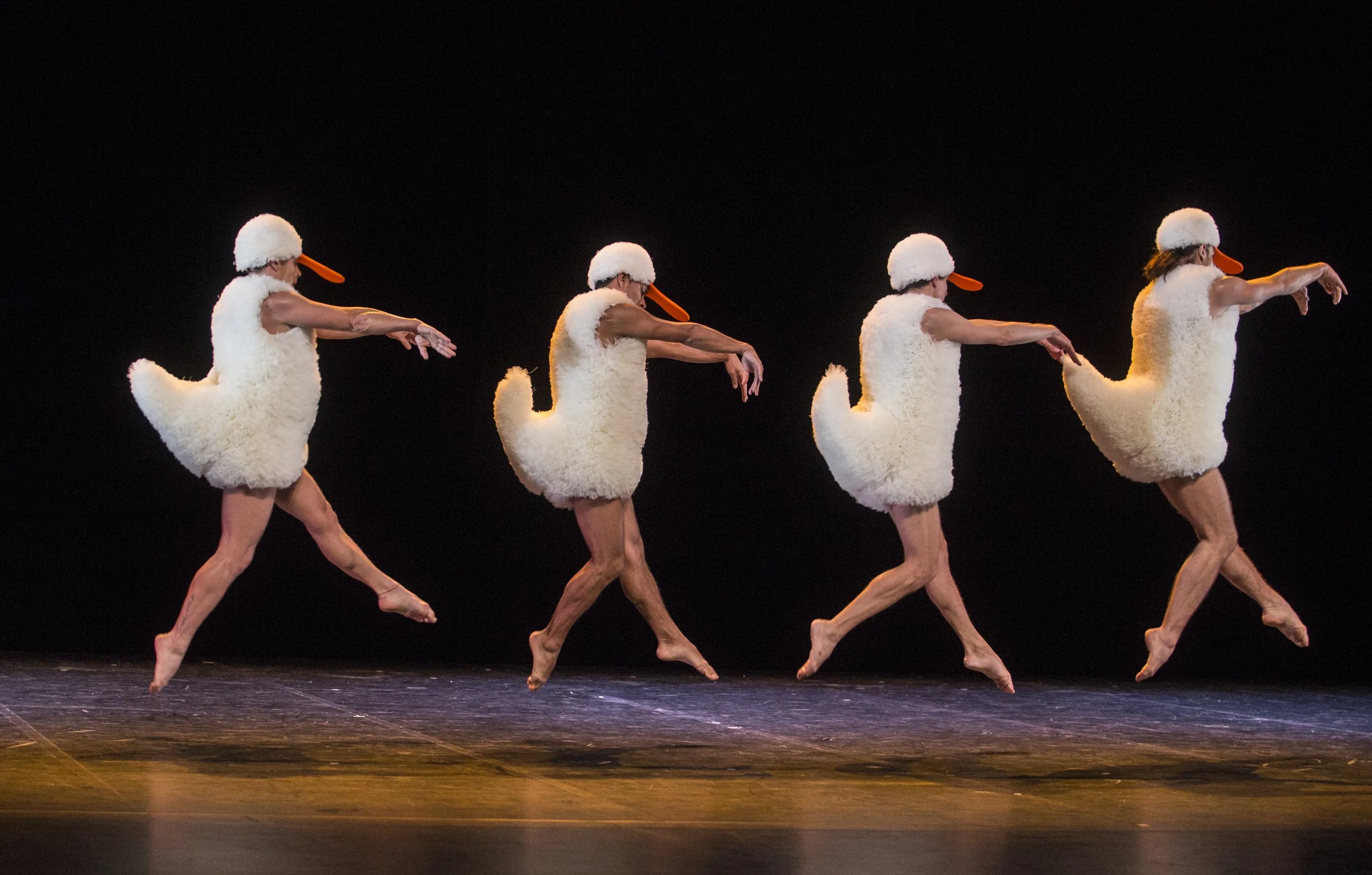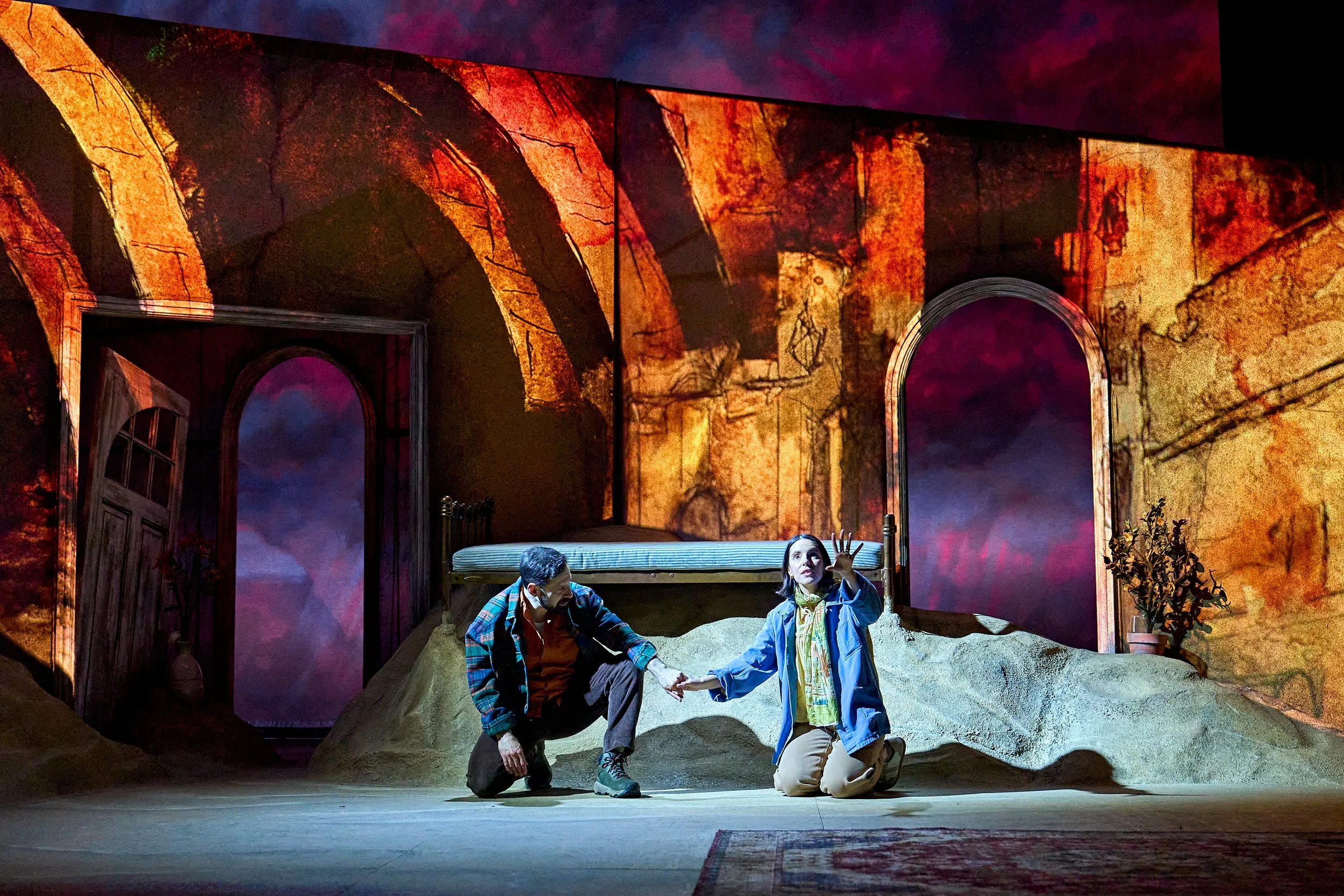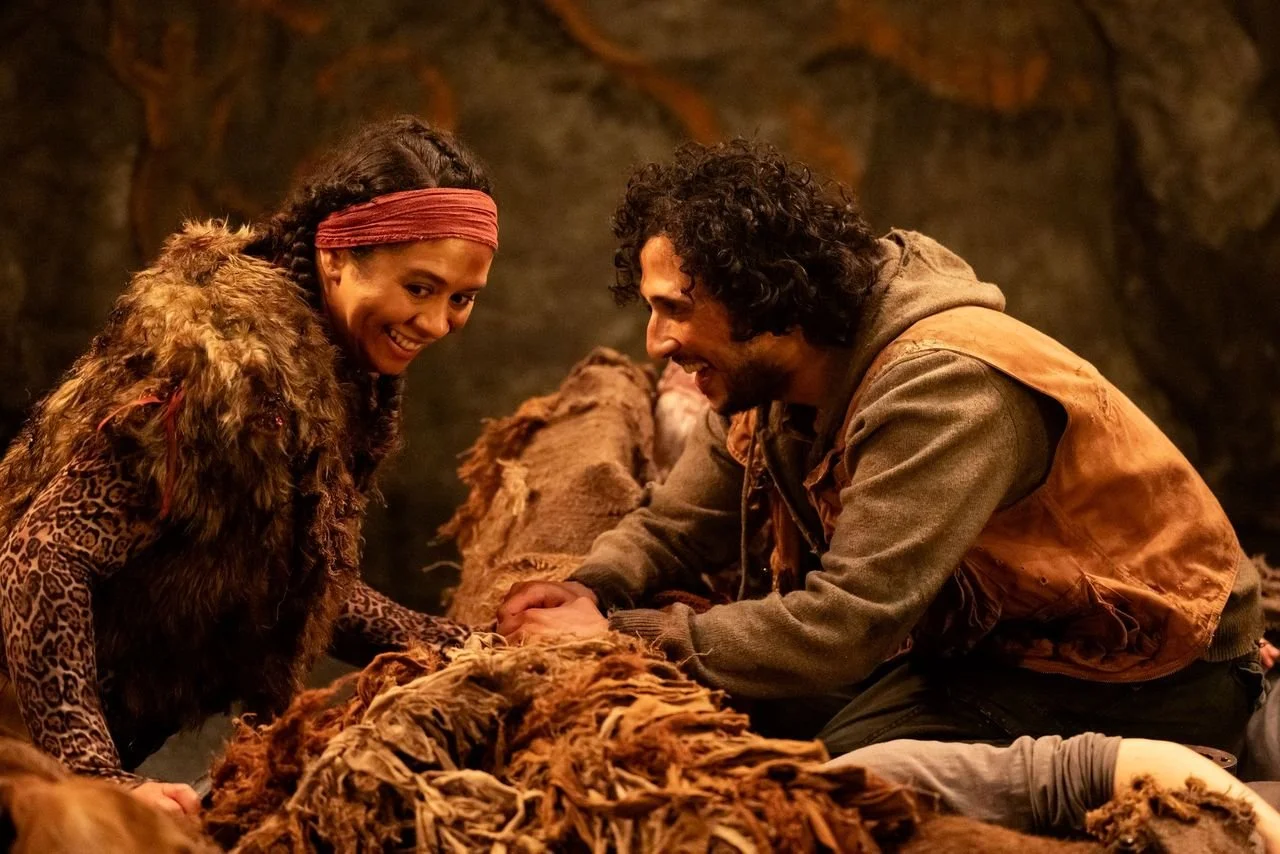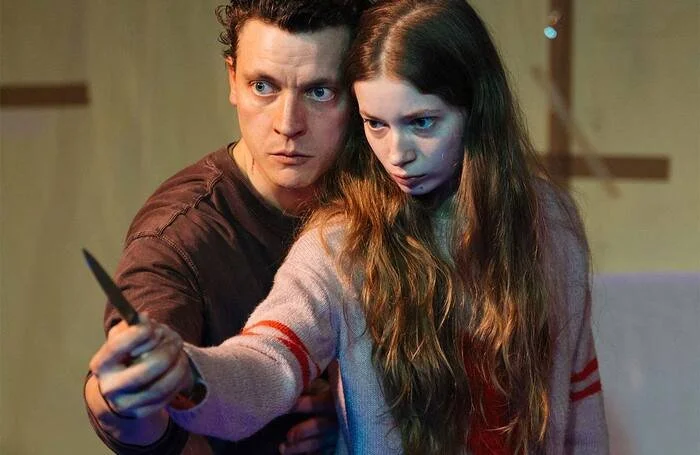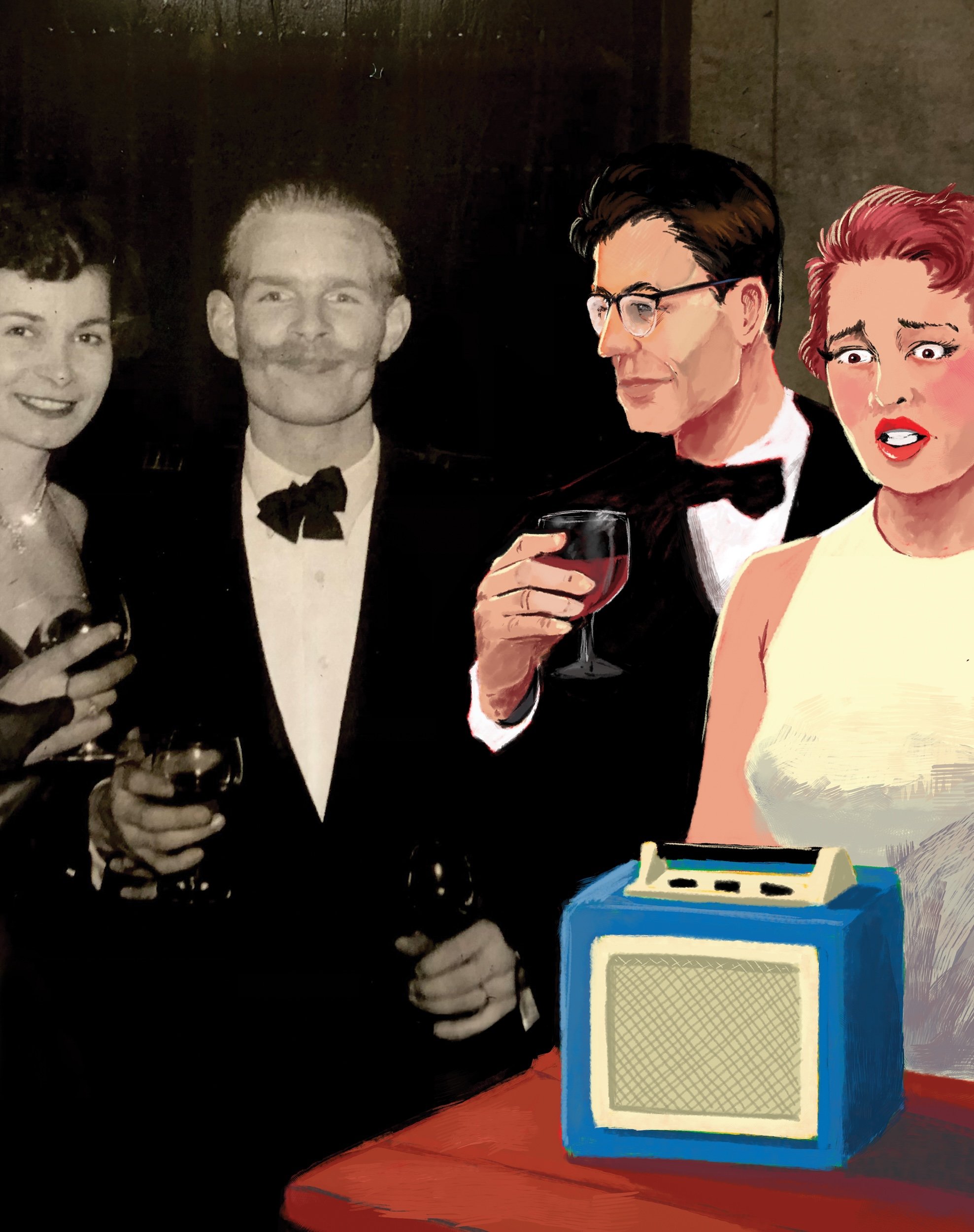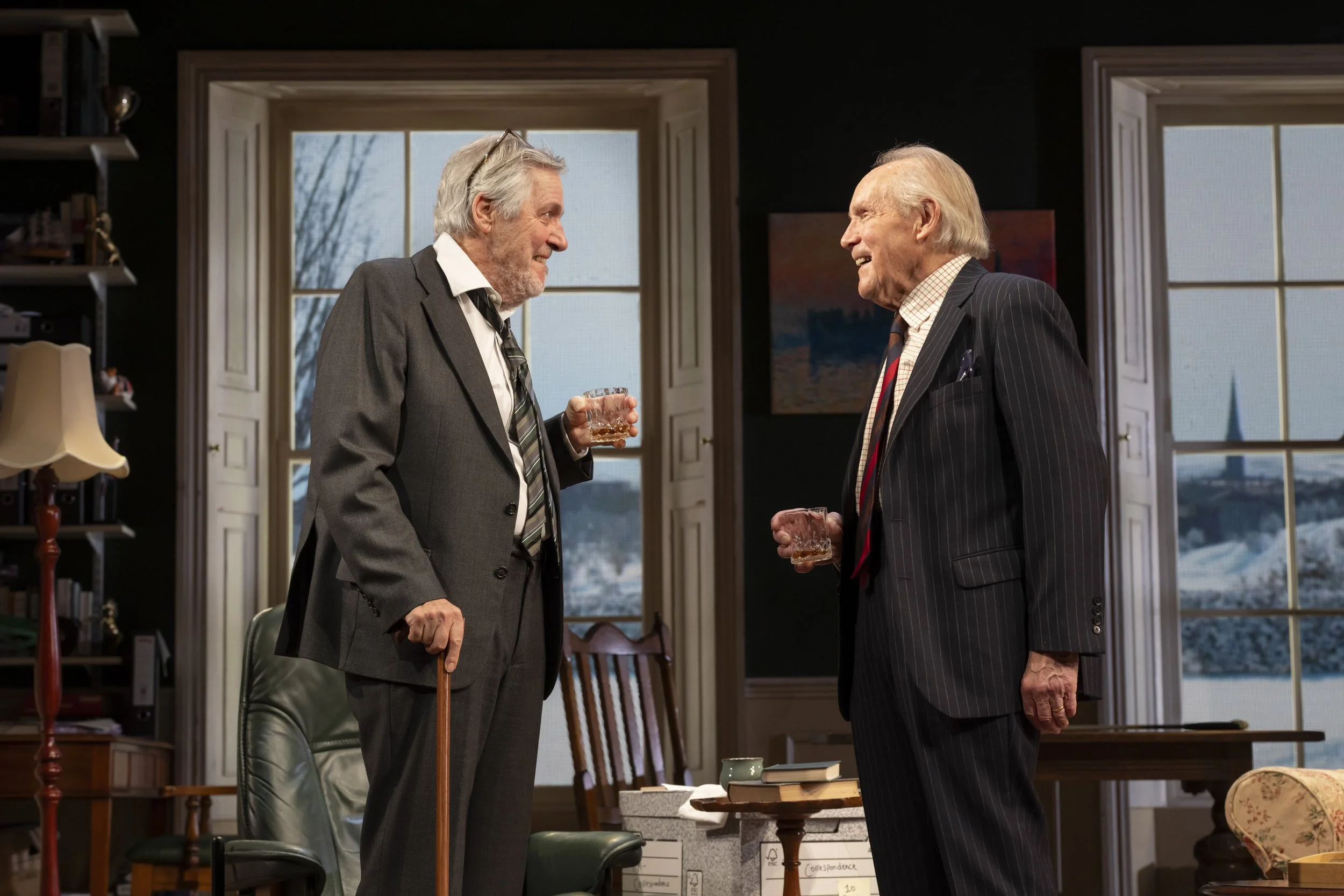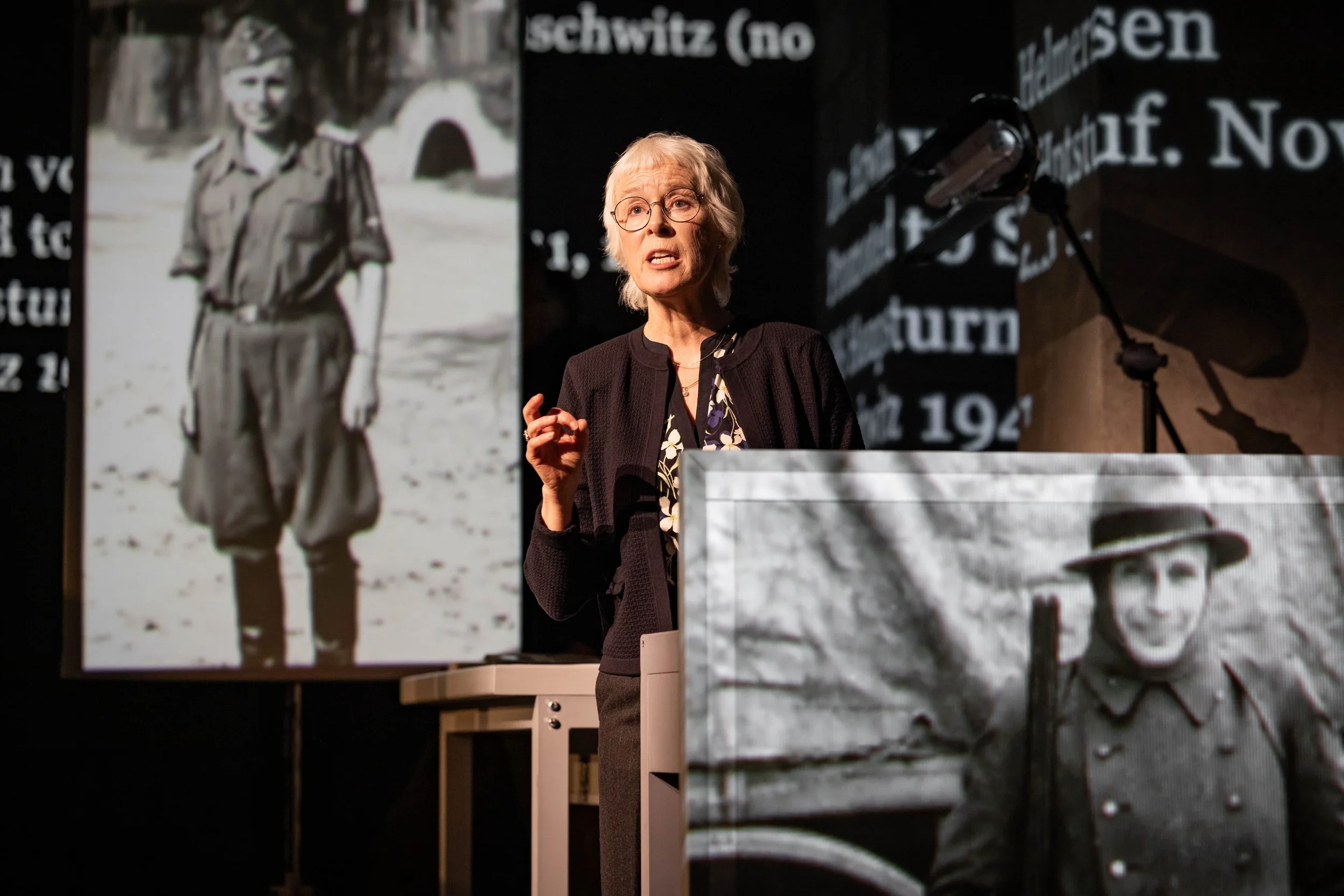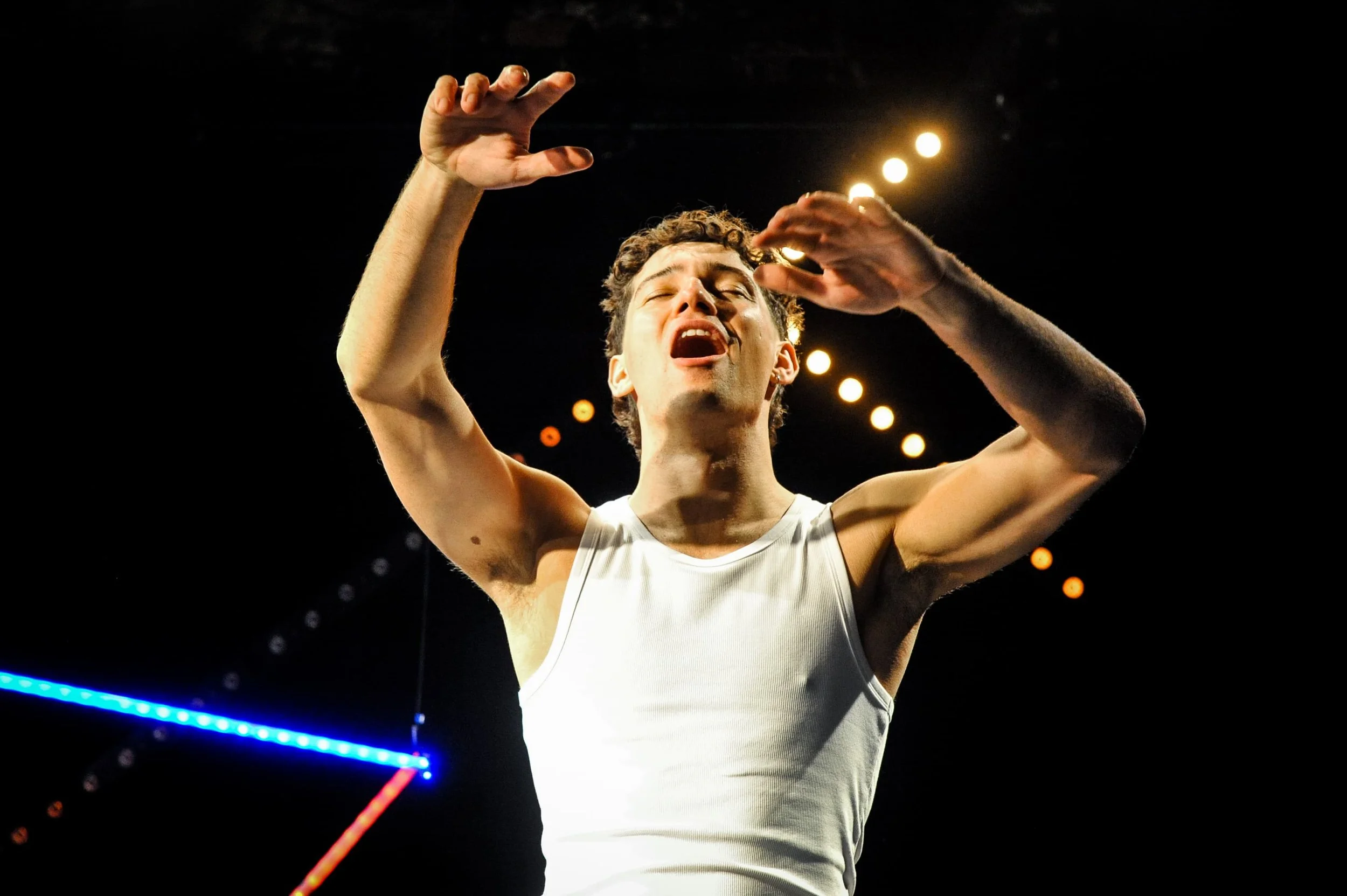Party Girls at The Marlowe Theatre, Canterbury Review
Ell Potter as Unity in Party Girls. Phot by Mark Senior
Written by Jasmine for Theatre & Tonic
Disclaimer: Gifted tickets in exchange for an honest review
Marlowe Theatre Productions brings the Mitford sisters and their world to life beautifully in this both focused and expansive production.
Getting the world of the Mitford sisters and its’ complexity onstage with any level of clarity is a feat in itself - there are a lot of sisters who lived vastly different and fascinating, though often appalling, lives. Amy Rosenthal’s approach to their story not only gives it a clear arc whilst crossing decades in the telling, but also leaves us with a clear warning about the times we live in now. Seeing how easy it is to normalise the unabashed fascism of Diana and Unity both in the world and in their family through the horrified eyes of Jessica, who is trying to become better than the world she came from, is a reminder to all of us of how easy it is for the extreme to become everyday. How easy it is to deny the danger of that shift, and even deny its consequences after it goes wrong.
Richard Beecham’s direction guides us through this world, one time slipping in front of the other like memories coming to the fore. Only when things slip into the more traumatic do we find the memories begin to overlap, creating a sense of the clash Jessica is experiencing as her beliefs and family butt heads more and more violently.
The actors do a truly impressive job of carrying their characters clearly and convincingly through vast timelines - some go from being teenagers to late middle aged women in a matter of moments, yet it is never a stretch for the imagination. You leave the show with a clear sense of who each sister was, how the chasms between them formed, and how the young girls of the ‘30s became the older women you see in the ‘60s sections.
This adds additional impact to moments such as the imagined conversation between the estranged Diana Mitford (Elisabeth Dermot Walsh) and Jessica ‘Decca’ Mitford (Emma Noakes) in later life, trying to force the mask off of Diana’s ongoing anti-semitism and nazi sympathies. In Diana Mitford, Rosenthal perfectly captures the way British Nazi sympathisers were re-integrated into the British upper classes, their past associations normalised as a minor mistake, which should be forgiven, rather than a horror.
Many stories about the Mitford sisters allow the glamour to overshadow the very real issues that tore them apart, and by choosing Decca as the protagonist, Rosenthal dodges this. Noakes gives a brilliant performance as Decca, literally crossing decades in minutes as the scenes shift times. In all the sisters, one thing that really stood out was the distinct physicality of each; their characterisation was clear in every move they made, how they walked, sat, and even arranged flowers. Simon Kenny’s costumes and set were also instrumental to how we recognised each character’s experience of the world, and he did a wonderful job encapsulating each place/time in one room or a few pieces of furniture with total clarity.
Beyond the politics of the show, Rosenthal also gives us a story to root for in the blossoming love between Decca and Bob Treuhaft (Joe Coen), her colleague. This is the story that offers some hope, because we see through their relationship how good the world outside the Mitford family can be for Decca and how much we can choose to move away from where we come from, as we see her get ever closer to a life that aligns with her beliefs.
Ultimately, this history resonates with our present-day divides, particularly with the way vulnerable parts of the population are targeted, blamed through neo-fascist logics for wider economic difficulties, and the way this is being normalised. The conversations the story is built around will likely not feel entirely unfamiliar, and you might often feel like you’ve been in Jessica’s shoes as we see her grow increasingly horrified by her family’s beliefs and the world she lives in.
That is why it is well worth catching - by the end, more than anything, you will find yourself thinking - ok, so what can we do about now?
Party Girls plays at the Marlowe Theatre until 6 September
★★★★

